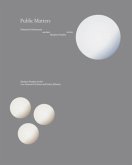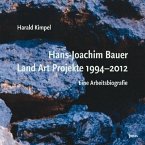Rüdiger Kramm is one of the most prominent representatives of that generation of architects having stepped out, in the late seventies, of theshadow of their predecessors, who had refounded and developed further Modern architecture in Germany in the three decades after the war. Kramm, with his constantly independent interpretation of brief and spatial context, avoids both the dogma of rigid functionalism and the random qualities of Post-Modern aesthetics in order to find an astonishing range of design concepts for the functional quality of buildings, which is a central question for him.
Kramm studied at the Technische Hochschule Darmstadt from 1966 to 1972, where the architecture faculty largely bore the stamp of Günter Behnisch at the time. After gaining his diploma he went on to the University College in London, where he subsequently worked on urban renewal projects with D. W. Insall. He opened his own office in Darmstadt in 1977.In 1990 he was appointed Professor of Building Construction and Design at Karlsruhe University; in the same year he made Axel Strigl his office partner.
After projects for refurbishing historical building stock and early residential buildings, in which he tried out concepts for energy- and resource-saving construction, Kramm acquired a reputation outside the immediate vicinity with the residential complex in Bessunger Straße in Darmstadt.
Hinweis: Dieser Artikel kann nur an eine deutsche Lieferadresse ausgeliefert werden.
Kramm studied at the Technische Hochschule Darmstadt from 1966 to 1972, where the architecture faculty largely bore the stamp of Günter Behnisch at the time. After gaining his diploma he went on to the University College in London, where he subsequently worked on urban renewal projects with D. W. Insall. He opened his own office in Darmstadt in 1977.In 1990 he was appointed Professor of Building Construction and Design at Karlsruhe University; in the same year he made Axel Strigl his office partner.
After projects for refurbishing historical building stock and early residential buildings, in which he tried out concepts for energy- and resource-saving construction, Kramm acquired a reputation outside the immediate vicinity with the residential complex in Bessunger Straße in Darmstadt.
Hinweis: Dieser Artikel kann nur an eine deutsche Lieferadresse ausgeliefert werden.








